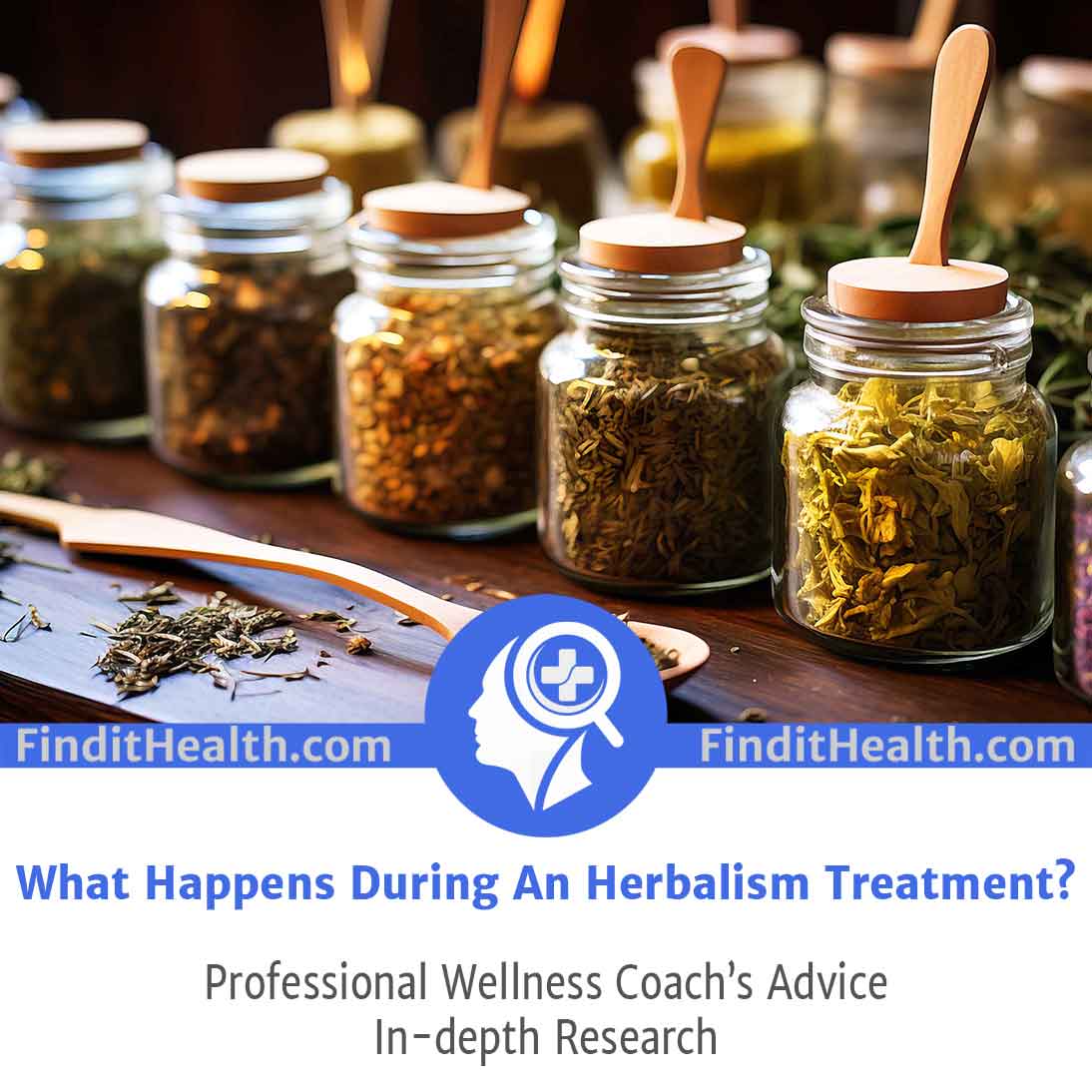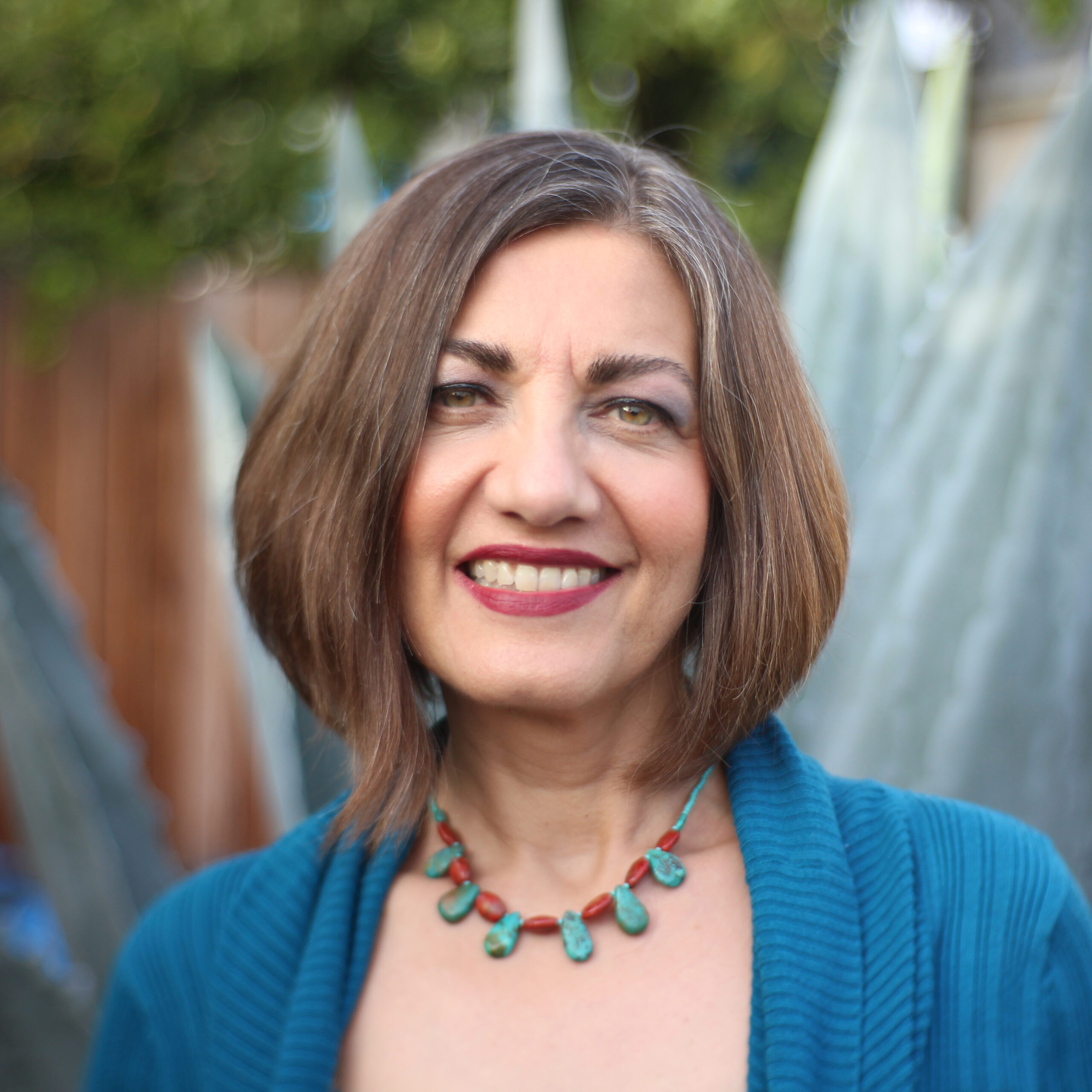
As the wellness coaching team director of Find It Health, I am dedicated to providing research-backed information and evidence-based knowledge. Today, our focus is on the events that occur during an herbalism treatment.
Herbal medicine, rooted in ancient times, is experiencing a resurgence in popularity as people and researchers seek natural alternatives. Join us on a personal journey of exploring the realm of herbal medicine, where our expert guidance equips you with the knowledge and resources to discover the wonders of herbal remedies.
What Happens During an Herbalist Consultation?
During a consultation, the herbalist begins by taking a series of steps to accurately identify the client’s specific health concern. This process enables the herbalist to recommend herbal products that contain active ingredients specifically targeted to address the underlying cause of the client’s condition.
Intake and Assessment
To start the consultation, the herbalist or a qualified practitioner asks the client about their medical history, current health concerns, lifestyle, and any medications or supplements they take. This may include a physical examination.
This helps the herbalist understand the client’s overall health and identify any adverse drug interactions or contraindications.
Symptoms and goals
The client shares their health conditions, such as digestive issues, sleep problems, stress, or skin conditions. They also express their desired health goals, which could involve managing a chronic condition, boosting immunity, or improving overall well-being.
Individualized Recommendations
The information you provide will give the herbalist the necessary details to prescribe a specific herbal therapy protocol. This treatment plan may include various herbal supplements. The herbalist will then recommend these remedies in the form of herbal products, dietary supplements, or other alternative medicine tailored to address your specific medical conditions.
Education and Lifestyle Changes
The herbalist educates the client about specific herbs, highlighting their properties and uses in supporting the body’s natural healing processes. Additionally, they offer guidance on lifestyle modifications, including dietary changes, stress management techniques, and exercise routines, to complement the herbal remedies.
Dosage and Administration
The herbalist will guide the client regarding the recommended herbal remedies’ appropriate dosage and administration methods. This may involve instructions on preparing herbal infusions, tinctures, or topical applications.
Follow-up and Monitoring
Tailoring to the client’s needs, the herbalist organizes follow-up consultations to monitor progress, make necessary adjustments to the herbal protocol, and address any emerging concerns or questions. These ongoing sessions ensure that the treatment remains responsive and adaptive, providing continuous support and guidance throughout the healing journey.
SUBSCRIBE for FREE STRESS MANAGEMENT TECHNIQUES from our EXPERT COACHES!
What Can Herbalists Treat?
Herbalists are trained to use herbal medicine for overall health support and a wide range of concerns. While they do not diagnose or treat specific medical conditions using conventional medicine like licensed healthcare professionals, they offer complementary support for various health issues, including:
Digestive Health
Medicinal plants, like conventional drugs, effectively treat digestive issues such as indigestion, bloating, constipation, or diarrhea. They regulate digestive functions and promote gastrointestinal well-being naturally.
Immune Support
Herbal practitioners can enhance the immune system using alternative therapies like moxibustion.
Moxibustion, a traditional Chinese medicine technique, combines moxa wool with acupuncture to offer a holistic approach to addressing illnesses.
Stress and Mental health
Plant extracts could be used to support stress management, relaxation, and emotional well-being.
Skin Conditions
Topical or internal herbal remedies offer a gentle alternative to harsh prescription drugs for alleviating symptoms related to skin conditions such as eczema, acne, or psoriasis.
Women’s Health
Herbalists can use herbal prescriptions to support menstrual issues, menopause symptoms, hormonal imbalances, and reproductive health concerns. Black cohosh is particularly effective for these symptoms.
SUBSCRIBE for FREE STRESS MANAGEMENT TECHNIQUES from our EXPERT COACHES!
Which Doctors Use Herbal Medicine?
Various healthcare professionals commonly utilize herbal medicine, including:
Naturopathic Doctors (NDs)
Licensed healthcare providers known as naturopathic doctors emphasize a holistic approach to healthcare. They utilize natural therapies, including herbal medicine, to support and treat a wide range of health conditions.
Traditional Chinese Medicine (TCM) Practitioners
TCM practitioners, such as Chinese herbalists and acupuncturists, often incorporate Chinese herbs as a key component of their treatment approach alongside acupuncture and other traditional modalities.
Integrative Medicine Doctors
Integrative medicine practitioners merge traditional medicine’s conventional treatment with evidence-based complementary therapies, including plant medicine.
Ayurvedic Practitioners
Ayurvedic medicine, originating from India, emphasizes the crucial role of medicinal herbs in its holistic approach to promoting health and well-being. This traditional system places significant emphasis on harnessing the healing properties of herbs to enhance overall wellness.
Functional Medicine Practitioners:
Functional medicine doctors focus on addressing the root causes of disease and optimizing overall health. They conduct systematic reviews to compare the medicinal properties of specific herbs with pharmaceutical drugs.
Herbal Practitioners and Traditional Healers:
Herbalists specializing in herbal medicine may work independently or in holistic health centers. They provide consultations and create customized herbal remedies for their clients.
SUBSCRIBE for FREE STRESS MANAGEMENT TECHNIQUES from our EXPERT COACHES!
Buying Herbs in Stores
When purchasing fresh herbs, it is important to evaluate their quality, source, price, and quantity. Look for herbs that are fresh and sourced from reliable suppliers, while also considering their affordability and ensuring you have the right amount for your needs. This ensures that you make the most cost-effective choices when buying herbs.
Assessing Herb Quality
Examine the herbs visually to identify signs of freshness, including vibrant colors, undamaged leaves or flowers, and the absence of mold or pests. If feasible, take a moment to smell the herbs and evaluate their aromatic properties.
This visual and olfactory assessment ensures that you choose fresh, high-quality herbs for your intended purposes.
Finding Local Stores
Find health food shops, herbal stores, or specialty stores in your area that offer a variety of herbs. You can search online directories, check local listings, or ask friends or herbal enthusiasts for recommendations.
Checking Freshness and Expiry Dates
Ensure the herbs have a reasonable shelf life by checking the expiry or best-before dates. Confirm their freshness by asking the store manager when the herbs were harvested.
Comparing Prices
Compare prices of the herbs you are interested in across different brands or stores. Consider factors like quality, quantity, and brand reputation when evaluating value for money.
Considering Form and Packaging
Choose your preferred form of herbs, such as loose dried herbs, pre-packaged tea bags, capsules, or tinctures. Choose packaging options that ensure freshness, such as sealed containers or resealable bags, and consider seeking recommendations from your herbalist.
Famous Herbal Medicinal Products
Here are some famous medicinal products in the USA to help you begin your herbalism journey:
- Echinacea
- St. John’s Wort
- Ginseng
- Valerian Root
- Saw Palmetto
- Ginkgo Biloba
- Chamomile
- Turmeric
- Garlic
- Burning dry mugwort
SUBSCRIBE for FREE STRESS MANAGEMENT TECHNIQUES from our EXPERT COACHES!
How Can I Find A Qualified Herbalist In My Area?
You can find qualified herbalists near you through various methods. Here are some ways to get in touch with an herbalist:
Researching Online Directories
Utilize online directories like the American Herbalists Guild (AHG) directory, the National Institute of Medical Herbalists (NIMH) directory, or local holistic health directories to find qualified herbalists specializing in complementary and alternative medicine.
These platforms provide a convenient and reliable resource to explore herbalist profiles, credentials, client reviews, and contact information. Connect with experienced and reputable herbalists who can guide you on your wellness journey.
Seek Recommendations
Seek recommendations from friends, family, or healthcare professionals experienced in herbal medicine or alternative therapies. They can suggest trusted herbalists they have personally consulted, providing valuable insights and feedback. Tap into their knowledge and experiences to find a reputable herbalist for your consultation.
Explore Local Resources
Search for nearby health food stores, wellness centers, or holistic health clinics that provide herbal medicine services. Inquire about the qualifications and experience of their herbalism practitioners.
Frequently Asked Questions
What happens during an herbalism session?
During an herbalism session, the herbalist takes steps to accurately identify the client’s specific health concern. This enables them to recommend herbal medication as their primary approach to illness and healthcare.
How does herbal treatment work?
Herbal treatment works by utilizing natural remedies derived from plants to provide effective treatment.
What is herbalist treatment?
Herbalists prescribe specific herbal medicines, including liquid extracts and dry extracts, which possess anti-inflammatory properties and other medicinal properties. These herbal remedies serve as an alternative or complementary approach to conventional prescription medicine.
What to expect from an herbalist consultation?
In an herbalist consultation, you can expect the herbalist to assess your health concerns, discuss symptoms and goals, provide guidance on herbal remedies, educate you about herbs’ properties and uses, and suggest lifestyle modifications.
Conclusion – Research by FindItHeatlh.com
The research team professionals at Find it Health have thoroughly examined the various elements that comprise an herbalism treatment. During the treatment, the herbalist conducts a comprehensive assessment of the client’s health concerns, carefully crafting an individualized herbal therapy protocol. In addition to prescribing specific herbal remedies, the herbalist also imparts essential education and guidance on lifestyle adjustments. However, it is important to note that while herbal medicine has demonstrated proven efficacy, It is advisable to consult with a licensed medical doctor before incorporating medicinal herbs into one’s treatment plan, to ensure the best course of action for individual health needs.
This comprehensive approach enables individuals to actively participate in their well-being and embark on a transformative journey toward natural healing. Regular follow-up consultations further support clients, allowing for necessary adjustments and addressing emerging concerns. Through the empowering nature of this holistic approach, individuals can truly take control of their health and embrace the transformative potential of herbalism.

